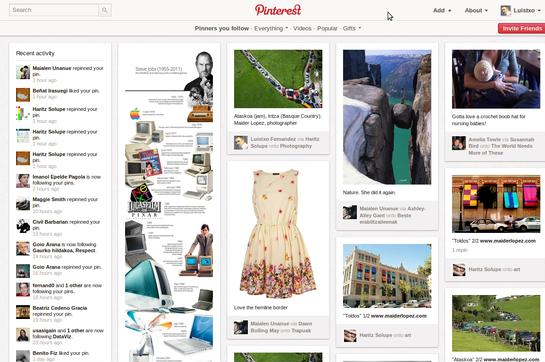Last chance to save on Digiday Publishing Summit passes is February 9

Pinterest is a contender to be the new big thing in social platforms. One thing it’s missing compared to the big one like Facebook, Twitter and even Tumblr: a business model.
That might be changing, although slowly. Pinterest is taking baby steps toward being more business friendly with the introduction of tools for businesses. What’s clear is Pinterest is following the playbook of the big social platforms: get brands hooked up the free stuff, then sell them more exposure. So it’s starting with a business accounts that verify businesses and some helpful tools and advice on making the most of the digital scrapbooking platform.
What’s not yet clear is how this will translate into ad products. The bet appears to be one familiar to brands using Facebook and Twitter: offer exposure of their brand content for a fee.
Pinterest recently raised $100 million at a $1.5 billion valuation. Pinterest has an incredible lock on the coveted female demo, credible analytics with regards to time-on-site measurement, and a great user-interface, per Christian Borges, vp of marketing at MRY.
“Honest answer: [Pinterest] probably [can] not [survive without a business model,] but nobody knows,” said Borges. “There’s been plenty of industry talk and speculation around how exactly Pinterest can monetize without alienating consumers, none of which involves traditional display ads, but rather more creative options, i.e. branded, promoted or highlighted pins.”
That’s the direction most social platforms are going. The vogue of “native advertising” means trying to get the ads to act like regular content. That means getting more brands creating on Pinterest in the first place. Then the trick is coming up with a way to introduce that content to Pinterest users in a way that doesn’t turn them off. There’s been rumors of sponsored pins, but nothing concrete. Pinterest is already a great place to find recipes or design recommendations and content creators are receiving substantial referrals through the platform. A potential route for Pinterest could be promoted content to help users find relevant content, a.k.a pins.
The fact of the matter is, according to Borges, Pinterest has been quietly experimenting with monetization though links to affiliate programs, whereby Pinterest adds their own affiliate tracking code and if someone clicks through that picture from Pinterest and makes a purchase, Pinterest gets paid a percentage, Borges revealed. But this is not a long-term solution. Therefore, they must have something in the works.
“Just because Pinterest hasn’t unveiled their monetization model, doesn’t mean they don’t have one,” said Adam Kmiec, social media chief at Campbell Soup. “There was a time when we, as an industry, believed Twitter and Foursquare lacked monetization models. Given the mountain of user interest and purchase intent data, Pinterest is sitting on, they’re better positioned to thrive than many other social platforms.”
More in Media

In Graphic Detail: The scale of the challenge facing publishers, politicians eager to damage Google’s adland dominance
Last year was a blowout ad revenue year for Google, despite challenges from several quarters.

Why Walmart is basically a tech company now
The retail giant joined the Nasdaq exchange, also home to technology companies like Amazon, in December.

The Athletic invests in live blogs, video to insulate sports coverage from AI scraping
As the Super Bowl and Winter Olympics collide, The Athletic is leaning into live blogs and video to keeps fans locked in, and AI bots at bay.





